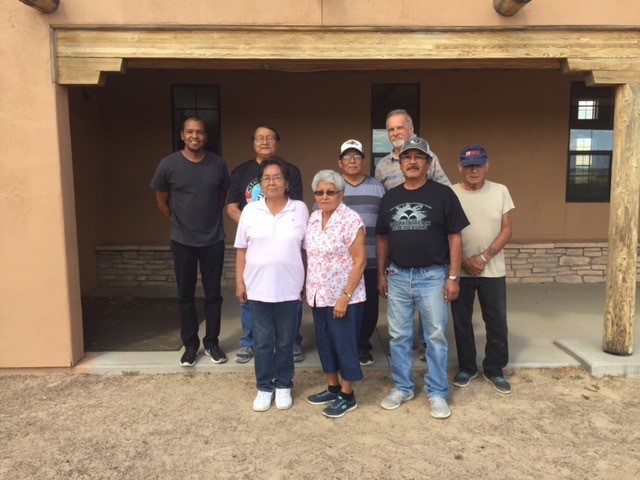 On September 10, 2018, a research partnership between UCLA Professor Paul Kroskrity and the Village of Tewa began a new phase. Funded by the Institute of American Cultures (IAC) through the UCLA American Indian Studies Center (AISC), the project “Designing a Dictionary for Tewa Youth” seeks to expand the dictionary documentation for the distinctive language spoken by a linguistic minority that resides on the Hopi Reservation in NE Arizona in the Village of Tewa, Polacca, and adjacent areas. The Tewa Dictionary Project team worked with Kroskrity to revise and expand a draft version of a dictionary. This and revised drafts of the dictionary will be shared with Tewa youth who are refining their heritage language skills in after-school courses which they voluntarily attend. Tewa youth will provide suggestions about how to make the dictionary more accessible to those with little or no linguistic training.
On September 10, 2018, a research partnership between UCLA Professor Paul Kroskrity and the Village of Tewa began a new phase. Funded by the Institute of American Cultures (IAC) through the UCLA American Indian Studies Center (AISC), the project “Designing a Dictionary for Tewa Youth” seeks to expand the dictionary documentation for the distinctive language spoken by a linguistic minority that resides on the Hopi Reservation in NE Arizona in the Village of Tewa, Polacca, and adjacent areas. The Tewa Dictionary Project team worked with Kroskrity to revise and expand a draft version of a dictionary. This and revised drafts of the dictionary will be shared with Tewa youth who are refining their heritage language skills in after-school courses which they voluntarily attend. Tewa youth will provide suggestions about how to make the dictionary more accessible to those with little or no linguistic training.
This project and earlier versions of it dating back to 2012 mark the first time this Tewa language has been written with a writing system that adapts the alphabet used to write English to the distinctive sound system of the Tewa language (which includes tone, nasality, and vowel length as well as a large inventory of consonants). Tewa is only very distantly related to Hopi and more closely resembles other languages in the Kiowa-Tanoan family. Most of those languages are still spoken in the Rio Grande Valley of New Mexico—the homeland of the ancestors of the Village of Tewa before they revolted against the Spanish Colonial Regime in the Pueblo Revolts of 1680 and 1696. For more than three centuries, the Village of Tewa has maintained its heritage language while learning Hopi, English, and other languages even though they are a tiny minority (around 750 of about 7,500). The Tewa people are very proud of the endurance of their language and continue working to make sure that it retains an important place in the community even with the onslaught of English language mass media and the economic benefits associated with use of English.
The IAC and AISC congratulates Professor Paul Kroskrity and looks forward to working with him on this project.